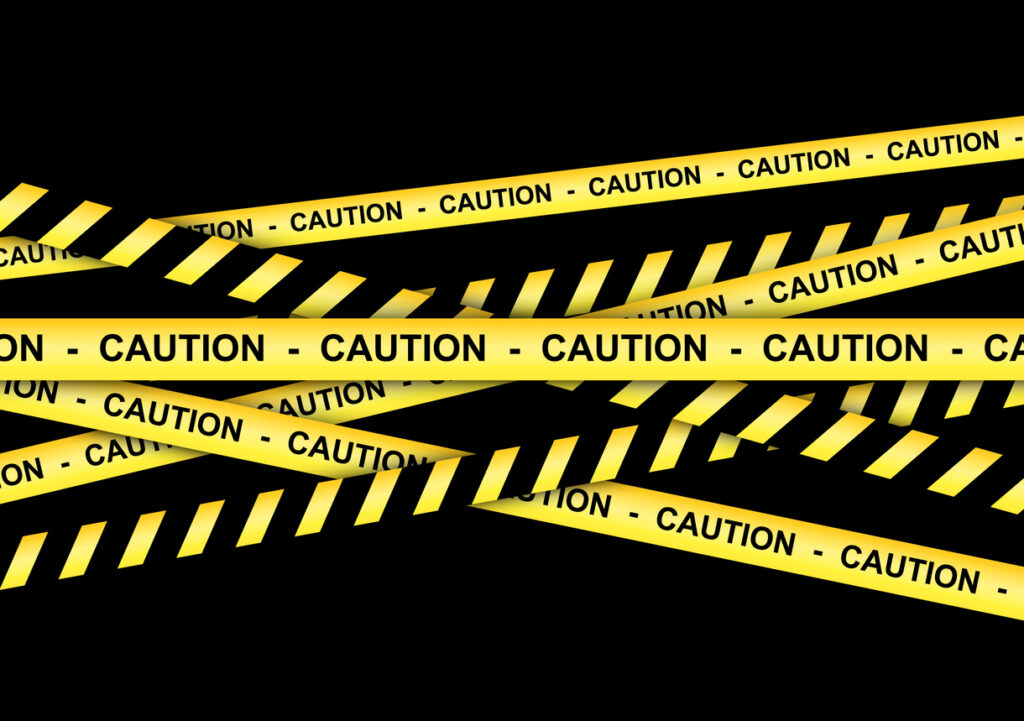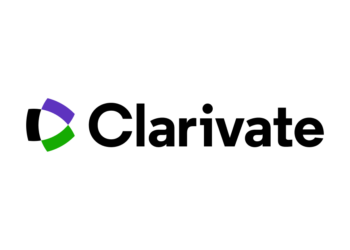We draw lines all the time to separate right from wrong, just from unjust, acceptable from unacceptable, or even from yet-to-be-acceptable. Drawing such lines on certain issues has always been part of the publishing industry. But there are times when we see these lines being crossed because of disruptions in our approaches, practices, or systems. Recent such examples include increasingly adopting and adapting to open access, mainstreaming preprints, or diversifying peer-review processes. ChatGPT and the GPT-3 have also made us consider whether the boundaries drawn for using artificial intelligence/machine learning systems in scholarly publishing are being crossed by these large language models. In this post, I look into five ‘lines’ that the publishing industry has broadly agreed upon, but that now we are finding ourselves crossing.

Line 1: Not taking any stand on international political conflicts.
Nations are involved in fighting all over the world, all the time, in the form of civil wars, terrorist insurgencies, drug wars, and invasions. Scholarly publishers produce thousands of articles every year on these events, but the industry restraints itself from taking noticeable steps to respond to these conflicts. It’s not only armed conflicts – when it is an issue directly linked to academic world, such as the Taliban banning Afghan women from going to universities last year or Brazil’s last president’s five-year war on science, no notable conversations were seen in the industry globally, nor actions taken.
Crossing the line: In early 2022, soon after the Russo-Ukrainian war broke out on February 24, we saw how promptly scientific organizations started protesting Russia’s invasion, quickly followed by publishing entities banning Russia from major book fairs, journals boycotting scientists working in Russia, and major publishers jointly and individually declaring their stand on the aggression. Many prompt actions were taken in support of Ukraine. Research4Life shifted Ukraine from Group B to Group A, which meant Ukrainian institutions won’t be paying access fees from 2022. This shift effectively means receiving full waivers on article processing charges (APCs) by many partnering journals. Fifteen publishers also made their content free to Ukrainian researchers. The ALPSP waived the 2023 subscription fees for publishing entities based in Ukraine. The STM Association installed a prominent banner on its homepage linking it to the ‘Supporting Ukraine’ webpage.
Crossing the line further: If the scholarly publishing industry now takes the above political stand on the Ukraine-Russia war, what will it say to non-Russian authors (or their countries) supporting Russia or Russian authors not supporting this aggression? How will journals check who falls in which categories as authors submit manuscripts? What will be the industry’s stand on a democratic government that supported “textbook example of ethnic cleansing” leading to the exodus of about a million ethnic minority Rohingya Muslims from Myanmar (Burma) to neighboring Bangladesh where they have been staying since August 2017? How will it explain its position on the fact that the Saudi Arabia-led coalition have killed and injured 11,000 children in Yemen since 2015?
Line 2: Considering peer review as a core pillar.
The peer review process is crucial for scholarly communication, thus advancement of scientific knowledge, by validating completed research by expert peers. In the absence of such gatekeeping, published literature is identified as “grey literature” and is considered relatively less authentic.
Crossing the line: Peer review now has diversified a lot. It is no longer a process which is single- or double-anonymized, but also could be triple-anonymized, be open, have citable peer review comments with DOIs, allow review at the research design stage, permit different parts of research getting reviewed as a researcher proceeds with their research project, or be open for review after publication.
Crossing the line further: Nowadays we are seeing increasing support towards preprints, which are technically (unpublished) grey literature. Clarivate Analytics has added a preprints citation index to the Web of Science. Journals are actively incorporating preprints into their workflow. And duplicate peer review doesn’t seem quite so unethical anymore. Also, since there are widely varied practices for citing non-peer-reviewed grey literature in peer-reviewed journal articles, we are essentially endorsing grey literature through those citations. Also, do we know how many national policy decisions are made based on peer-reviewed research as opposed to raw data collected by government agencies? Aren’t we overrating the importance of peer-reviewed research in creating research impact? Shouldn’t we now stop our over-reliance on volunteer peer reviewers to ensure research integrity and take a break from branding them as the ‘Guardians of the Scholarly Galaxy’?
Line 3: Not seeing beyond knowledge communication.
The scholarly publishing industry has essentially been concerned with communicating new knowledge and making it accessible to those who can afford it – by paying subscriptions, having required infrastructure, or by being a part of subsidized programs. The industry has long kept itself at a distance from its possible role in addressing global societal challenges, like actions towards sustainable development, environmental sustainability, fighting climate change, and sectoral injustice.
Crossing the line: In recent years, we have been seeing significant traction towards Diversity, Equity, Inclusion, and Accessibility (DEIA) within the industry. Numerous publishers and their societies adopted DEIA policies, working groups, toolkit (e.g., C4DISC), and real actions. Over the last couple of years, we are seeing publishers and their societies becoming active in supporting the SDG Publishers Compact, in undertaking climate actions, or in initiating global initiatives on the ground to protect the nature (e.g., EASE Virtual Forest since 2021).
Crossing the line further: Drastic cuts on fossil fuel use is the only way to the fight climate crisis by achieving net-zero carbon emissions. As per the decision made by about 200 countries in November 2021 at the 26th United Nations climate conference (COP26) in Glasgow, nations are supposed to increase their “efforts towards the phasedown of unabated coal power and phase-out of inefficient fossil fuel subsidies.” Can scholarly publishers issue public statements that they will not publish any research funded by fossil fuel companies? Can they update the manuscript submission portals by adding a sentence or two regarding this as many already bear declarations of ethical concerns?
Line 4: Measuring journal impact by counting citations.
The impact of scholarly journals is measured by a range of indexes and matrixes, which essentially count how many times individual articles are mentioned in successive global publications.
Crossing the line: The indexes meant for measuring journals’ impact are now widely used to judge researchers, although many matrixes also exist to rank individual researchers. Articles published by all researchers of an institution are now used to rank the institution by different ranking systems. That also drives institutions to publish only in those journals which are indexed by a particular authority.
Crossing the line further: The ‘Top Action Tips for Academic Publishers, Editors and Reviewers‘ was prepared by the SDG Publishers Compact Fellows. The No. 10 tip reads “Look for impact. Alongside typical academic metrics, include measurements of an article’s impact derived from policy, practice and non-academic sources.” My fellow Chef Charlie Rapple has recently untangled and showed connections among journal impact, academic impact, and research impact or “real change in the real world”. In addition to a few attempts to count the number of SDG-related journal articles to measure research impact, can we explore qualitative ways to measure such impact? As I argued in an earlier piece, can we measure how our climate change research is influencing our climate actions by finding place in the globally-reputed IPCC reports? Or how countries, such as Bangladesh, Ghana, the Maldives, and Sri Lanka, are using research to design their decade-long prosperity plans?
Line 5: Not entertaining any unethical publishing practice.
In addition to maintaining publishing ethics on the authors’ side, journals and publishers are also put under ethical radar. Attempts have been made to draw lines between the good and bad publishing practices. Predatory (or deceptive or fake) journals and their publishers have long been identified and listed, although not without confusions and controversies, showing how blurred such lines might get.
Crossing the line: On March 20, 2023, Clarivate delisted 50 journals, many from reputed publishers including open access ones, as they no longer met the agency’s “quality criteria”. This is no longer a question of lack of editorial capacity, of limited access to technologies, or of inadequate investments, it is rather a question of integrity, professional negligence, and poor early warning system (e.g., against paper mills). Should we brand it as an example of “putting profit before integrity” as well? That is yet to be explored. Nevertheless, in the wake of this removal, Wiley’s Jay Flynn echoed the call of Clarivate’s Nandita Quaderi for enhanced collaboration among publishing stakeholders to uphold research integrity.
Crossing the line further: But I think this latest delisting event – let me call it ‘Delisting-gate’ with another 450 journals being scrutinized by the Clarivate – has a strong justice concern that we are not talking about. After charging millions of dollars from libraries (in subscription fees) and authors (as APCs), enabled by showcasing their indexing reputation, by getting delisted from Clarivate’s index and losing their Impact Factor scores, these delisted journals in fact have done injustice to their clients and customers. Is there any central grievance mechanism for placing such concerns? Will courts accept cases filed by the affected authors if they want compensation for the humiliation, false promises, and impacts on their career progression? On the contrary, are the affected authors bothered at all about such a delisting scandal?
Thinking of these examples, it seems to me that it is not actually about “crossing the lines” we draw based on our understanding and judgement. Rather it is “pushing the lines” to certain directions based on our changing interests and unconfessed limitations.
Discussion
8 Thoughts on "Drawing Lines to Cross Them: How Publishers are Moving Beyond Established Norms"
Excellent post Haseeb!
Thanks, Sherri!
Haseeb, in linking preprints to grey literature, I’m afraid you’ve inadvertently fallen in the ‘grey literature isn’t peer-reviewed’ trap. When, in 1984, Wood coined the term grey literature, he did so to describe material “which is not available through normal bookselling channels … leading to problems for the producers of secondary services, for librarians who wish to collect it, and for end users.” He didn’t mention peer review in his definition, noting only grey literature’s “variable standards of editing and production, poor publicity, poor bibliographic control, and poor availability”. As Lawrence found in 2017, most grey literature is indeed ‘peer-reviewed or expert-reviewed’ (I am not exactly sure what the difference is!). To give you two examples, the IEA’s World Energy Outlook 2022 and, as you put it, one of the ‘globally reputed’ IPCC reports, both released as grey literature (because neither is available via ‘normal bookselling channels’ or today’s equivalent). In their respective front matters, the former lists all 111 of its peer reviewers while the latter states: “Drafts prepared by the authors were subject to two rounds of formal review and revision followed by a final round of government comments on the Summary for Policymakers. A total of 62,418 written review comments were submitted by more than 1600 individual expert reviewers and 51 governments.” So, I don’t think publishers are crossing any lines by accommodating authors’ need to cite grey literature – indeed, if any line is being being crossed, I think it is to be found in the research community’s increasing willingness to publish findings as grey literature rather than sticking with formal, publisher-managed, channels such as journals and books. This line is being crossed mostly by researchers working outside academia e.g. those working with IGOs (like the IEA and IPCC), NGOs, think tanks and governments. I sometimes wonder when those inside academia will start to follow suit.
Thank you for your comment, Toby. Much appreciated. Indeed the definition of “grey literature”, in the light of peer review, needs to be carefully looked into. One part of related discussion to me is which type of grey literature we are talking about, as they can vary so much in length, depth, breadth, publisher, authors involved, focus, purpose, and channel. Another related question is, if grey literature in question bear “original” research, or it is only an attempt to compile existing knowledge to guide evidence-based policy making, without advancing knowledge per se. I also think recognition is a key issue when we talk about grey literature. Peer-reviewed journal articles are widely counted in academics’/ researchers’ career progression, especially in STM. I am not quite aware of many universities/ institutions which may allow scoring non-journal research/ analytical/ knowledge outputs (even if these are as rigorously reviewed as IPCC reports) at the same level as the journal articles. I personally, however, believe we need to find a way to appreciate non-academic journal outputs as a contribution to advancing knowledge or philosophy around a discipline. But that is another issue altogether.
Thanks for your reply, Haseeb. Grey literature is, by definition, a mess because it is issued by organisations (usually just posted on their websites) in whatever format, manner and style they choose. Unlike journals and books (and, indeed, preprints) there is no standardisation. The biggest challenge is the absence of structured metadata, making it hard for this content to be included in the mainstream discovery systems (something we are trying to address with Policy Commons). However, the content can be really good and is often very timely (issue-focussed orgs often react faster than academia to new data or to events). They often contain unique data – for example, I just uploaded a report to Policy Commons from the Rainforest Action Network that contains data on bank financing of the ‘carbon-energy industry’. We’re currently indexing content from 9000 organisations like RAN, it’s amazing how many there are out there. You’re right to put your finger on another difference: recognition. Researchers’ careers in non-academic organisations are not dependent on being published in the ‘right’ journals, which is another reason why they don’t mind their work being published as grey literature. However, what I am seeing is many NGO-commissioned grey literature research reports being written university-based academics (often in the context of research centers housed by universities). I imagine these reports are not being counted in promotion and tenure processes – but I see no reason why they shouldn’t be! As you note: all outputs that advance knowledge should be appreciated equally, not just those which are published in books and journals.
Thank you for sharing your thoughts, Toby. Let’s keep the conversation on grey literature going. Hope others will also appreciate more the need for recognizing this less appreciated group of literature in our knowledge economy.
Dear Haseeb, thank you for raising these important topics. I agree with all of them except for one: the idea of not taking a stand on international political conflicts.
In my opinion, it is shameful not to take a stand against violence. Every decent human being should take action to stop those who use violence as a means of achieving their goals. Ukraine has been making headlines because its neighbours and Ukraine itself are trying to stop the ongoing violence. Yemen and Myanmar (Burma) are also good examples of this. Why haven’t their neighbours done more to raise awareness and take action against aggressors?
What kind of values are being defended when we say that “I would not prevent violence I see in my yard because other violence in other yards were not prevented”? If a stand is not taken, it would mean that genocides could be justified and silence in the face of these genocides could be deemed acceptable because nobody cared in the past. The Russo-Ukrainian war is a great example of how these situations should be handled. I hope that following this example, some active people and organizations will do the same with the Yemen conflict and Myanmar (Burma). It is not too late. Something could be done better than just staying aside and pretending that scholarly communication does not participate in politics. The same goes for the widely-known cliché that sports is not part of politics. Everything that is not naturally caused is political.
Thank you Vincas, for your thoughts on scholarly publishers taking a stand on political issues. I understand the difference between and the underlying reasons behind the publishing industry in the Global North responding to the Russo-Ukranian war, but similar industry in the South not doing so. I think the publishing industry in the South has not evolved the way it evolved in the North when the question of political stand/response comes in. For now, I think the publishing industry and their societies in the North will be more open in responding to conflicts elsewhere in the world, as you rightly noted “It is not too late.”



